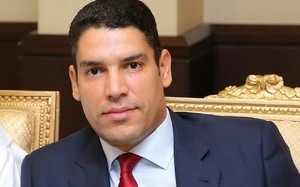Vietnamese experience provides economic development lessons for Egypt
VOV.VN - News website Shorouk of Egypt has recently published an article by author Mohamed Yousif detailing lessons on economic development in Asia and the experience of Vietnam.

The author stated that at present the Arab world is standing on the verge of a future filled with both economic and social challenges. As a result, it can be considered necessary to contemplate and scrutinise international experience ahead in the fields of industrialisation and economic development. This comes as Asia continues to stand out with plenty of economic success stories, including the notable growth of the Vietnamese economy.
Most notably, the nation has a social and political background that is similar to many Arab countries and is now moving at a rapid rate in terms of local industries, with numerous economic indicators offering lessons for the Arab world in terms of the formulation of development policies.
As such, the country has brought into play many human resources, whilst also striving to diversify its economic structure and sustainable production force to enjoy greater economic growth.
As well as boasting a high average life expectancy, the Vietnamese Government is focused on quality in regard to education, health care, and social services.
A significant highlight is the industrial development achievements that have served to allow the country to transition into a state of surplus. This has seen the nation sharply reduce its proportion of raw materials, while also giving priority to the export of high-tech products.
With an average annual economic growth rate of 7% the national economy has helped to ensure food security and make improvements to most of its financial indicators.
Furthermore, Vietnam has recorded many remarkable achievements due to its success in formulating and implementing a plan for internal strength promotion, goal building, and implementing the right solutions aimed at greater industrial development and modernisation. This has been done in addition to successes whilst choosing development models and efficiently optimising economic resources.
Furthermore, the country has been able to combine internal, regional, and international factors that are conducive to greater economic development. One notable feature is its industrial policies which strive to enhance the national industrial capacity whilst mainly targeting industries with a high-added value. This can be seen due to a surplus recorded in terms of technology industry balance.
Moreover, the foreign investment attraction policy of the nation can also be considered of interest after drawing tens of billions of USD over the past five years. Most notably, 2018 saw foreign direct investment in the country reach a figure of US$15 billion, therefore serving to boost Vietnamese achievements in the foreign trade sector whilst marking a leap forward on the path towards national modernisation and development.
With Vietnamese success in industrial development, it remains a question of how likely it is for the feat to be repeated in one or more Arab countries and if Middle Eastern nations are able to lessons learn from the Vietnamese experience. As such, it is important for Arab countries to reconsider the plausibility of their domestic economic policies and the effectiveness of their integration schemes.
Since being published the article has captured the attention of the public and has received plenty of feedback from readers. One response was made by Egyptian entrepreneur Mahmoud Rateb who argued that the key difference in Vietnam's development policy is to focus on education, health care, and industrialisation before making investments in infrastructure. Indeed, with the nation spurring exports it has gone on to achieve a number of impressive results.
Meanwhile, Hamza Farakh, an expert from the Ministry of Agriculture of Egypt, said that it is more surprising to know that Vietnam has gone through two cruel wars, but today can look back at a successful renovation process.
